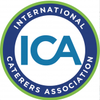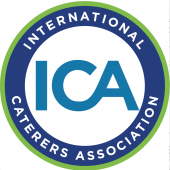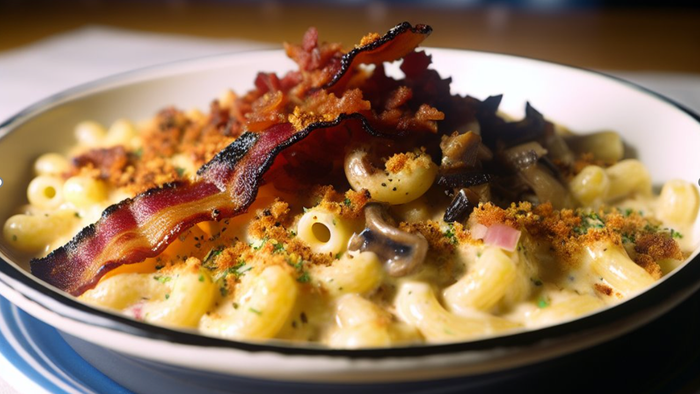10+ Takeaways from the ICA NYC Workshop at Dish Food & Events10+ Takeaways from the ICA NYC Workshop at Dish Food & Events
September 12, 2023

While the in-person ICA workshops returned last fall, we are still on cloud nine being able to meet with our members and community live, face-to-face. It’s something we never take for granted these days!

Networking is back now that in-person ICA workshops have returned. Photo courtesy Hyde Photography @hydephotography_
The most recent workshop brought everyone to Queens, NY, the home of Dish Food & Events, our gracious host. Attendees were enlightened with thought leadership sessions, indulged in delightful cuisine, were treated by sponsors, and made incredible industry connections.
Wondering what insider knowledge was presented? Today we’re sharing some of the greatest takeaways from the sessions.

The most recent ICA workshop was held at Dish Food & Events in Queens, NY. Photo courtesy Hyde Photography @hydephotography_
The secrets to hiring, training, and retaining an off-premise event team
One of the biggest challenges and mysteries for catering professionals is hiring a team that stays and creating a culture that builds a family. Our hosts from Dish Food & Events brought their A-team in to share some tips. Clark Kinkade, Director of Hospitality & Culture, and Rainey Rowan, Staffing Coordinator, gave six areas they focus on as a team:
Outreach hiring is more effective
Rather than assuming talent will come to you, you must seek out top talent. A few ways to do this are to:
Set up a referral program with incentives like a $50 gift card when their hired referral stays for at least six months
Use hiring platforms like Culinary Agents, where top talent can create profiles highlighting their experience, then seek out what your team needs
Create a career page you can point prospective candidates to that really sells your company culture
Use social media to your advantage—you may have followers who have either worked for you before and are in new circumstances or people who have attended events or worked for competitors who are looking for new gigs
Conduct a three-part interview to find the best fit
To hire a competent team, you need to go beyond the traditional interview cycle due to the nature of our business. Dish Food & Events has a three-part interview that includes the formal interview, an in-person training session, and their first shift.

Dish Food & Events' leadership team participated in a staffing panel. Photo courtesy Hyde Photography @hydephotography_
If all three areas are a go, the individual is hired! If not, it’s on to the next candidate.
Reward 51 percenters
You may have heard this industry-famous hiring technique coined by Danny Meyer, Founder & Executive cChairman of Union Square Hospitality Group, which is responsible for world-famous spots like Gramercy Tavern and Shake Shack.
He said that 51 percenters have 49% technical skill and 51% emotional skill. Since hospitality is very much a combination of service and sociability, plus flawless execution, this mix is essential for success.
Dish Food & Events teams look out for team members who are on time, well presenting, thoughtful, and demonstrate compatibility with company core values and mission, and they reward them to retain them. That’s their 51%.
Ensure your onboarding is streamlined
The next factor in effective training and retention lies in onboarding. Once hired, Dish Food & Events team members receive a welcome email that includes all the information they need from human resources, like the company manual, organizational chart, and policies and procedures.
Then, they’re welcomed to a new hire training that happens quarterly. It’s approximately three hours and is broken down into the following timeline:
Introductions & Ice Breakers (15 minutes)
Company Culture & Heart Hospitality (30 minutes)
Policies & Expectations (15-20 minutes)
Sample Event Review (75 minutes)
Paid Lunch for Team Building (60 minutes)
Then, they’re given 30 days to complete solo trainings like DEI, Dish Dollars trainings, etc.
Provide additional training opportunities
Ensure training doesn’t end at on-boarding though. Dish Food & Events offers the following annual or bi-annual trainings:
New captain training
Captain shadow shifts
Captain meeting
Bar training
Private home training
Company meetings
Invest in your team
Last (but certainly not least), invest in your team! Ensure your communication is flawless, don’t forget about promotions and raises, celebrate accomplishments, and generally build a culture where your team feels appreciated.
What we do is hard work—physically and emotionally—and in order to keep spirits high, you need to focus on recognizing what your team does to keep your business running.
The key to building mutually beneficial venue relationships
Building strong venue relationships is crucial to success as a caterer, and it requires a blend of respect, collaboration, and personal connection. Jennifer Perna, Principal at Fulton Market Consulting, along with catering experts like Michael Guadango from Dish Food & Events, Lindsey Hamma from The Foundry, and Karen Jiminez from The Prince George Ballroom, participated in a panel discussion where they shared several key factors that venues look for in a catering partner.
Respect the property and execute with professionalism
First, respecting the venue's house rules is non-negotiable, along with the ability to handle all aspects of an event seamlessly.

The venue panel. Photo courtesy Hyde Photography @hydephotography_
Caterers are the face of the venue to clients, making it vital to leave a positive impression. Since venue managers often leave early, catering teams are entrusted with closing up shop and maintaining the venue's integrity, which includes being gentle with floors and walls. Caterers should aim to leave the venue better than they found it, always!
Trust is paramount—don’t break it.
Play a role in each other’s sales process
Venue expectations from catering partners extend beyond just providing food.
Caterers play a crucial role in sales, with corporate business often originating from them. For weddings, venue reps are aware of the venue's significance in the decision-making process, so caterers should align leads with the venue's unique qualities—almost serving as an extension of their sales team.
Perna made a good point on how venues can also leverage the caterer relationship better, suggesting that venues bring caterers to the venue for insights into why they do or don't book it during their sales process.
Create interpersonal relationships on both sides
Venue partners and caterers truly become a team, an extended family, if you work with them enough. Get to know each other on a personal level—it will make work more fun!
A few ways the crew recommended were:
Following caterers on Instagram
Using fun questionnaires to learn more about them and their favorite things
Sharing personal interests during setup or breakdown
All of these simple things build trust and long-term relationships. Plus, if that person ever leaves the venue, you have a partner at the new venue and a guaranteed intro to the new rep.
In this industry, strong relationships are the foundation of success.
Why selling painkillers is the key to profits
No, not those kinds of painkillers. Meryl Snow, co-founder of Feastivities Events, shared the key to increasing profits—and it’s selling painkillers. Identifying your clients’ pain points and presenting them with the solution is the best way to sell your services and creative cuisine.
Her tip for uncovering those pain points?
Ask the right questions, identify the pain point in the answer, and use that to close the sale.
Here are a few questions to get you started:
How did you get engaged? Tell me about the proposal!
How do you want your guests to feel when they leave your wedding?
What is a must have?
What is your deal breaker?
You have been to a lot of weddings in the past year—what three things have you loved about weddings you attended? What three things did you not love?
Do you have a Pinterest board?
Have you planned this event before?
What role would you like me to take in the planning process?
What, if anything, would you change about your last event?
Tweak these for each unique event, and use your inquiry form to help guide some of the questions. And, for one final question if they don’t seem to be committing—ask what their hesitation is. It’s a fair question and can be the one to push you closer to closing!
How event planners can become your new revenue stream
Since many caterers have designated event coordinators in-house for clients, they don’t typically think to network with event planners. Amanda Savory from Amanda Savory Events (ASE) is trying to help caterers shift that mentality. She shared that as a planner, her caterer relationships are some of her most important vendor connections.
Here is how she chooses caterers for her clients—a unique perspective not many of us have been privy to previously:
Creative presentation – She wants to hire people she’d trust with her own wedding
Delicious food – No standard banquet fare
Long-term staff – Good company culture means good service for her clients
With this, she has preferred caterers she uses if she has a choice based on relationships built over the years. She’ll also go through venue-preferred caterers and look for existing relationships first. If she can, she’ll recommend only one caterer to a client. Sometimes they’ll request multiple options, but if she has full control, her go-tos are built on the above criteria.
Use these tips to go out and start creating planner relationships this quarter!
What catering company owners actually want
Don’t we all wish we could get inside the owner’s mind sometimes?
Well, Ryan Corvaia, Founder & Owner of our host, Dish Food & Events, let us behind the curtain in this session. He shared a quick rundown of a couple of the most important parts of business.

Dish Food & Events owner Ryan Corvaia. Photo courtesy Hyde Photography @hydephotography_
Being in the loop
When there is a lot at stake, the owner wants to make sure all is going according to plan. Corvaia shared that he wants to be involved or at least in the know about big financial decisions and important creative decisions, meaning inclusion on emails, in meetings, etc. so he can decide at what level he’d like to be involved.
To drive three-, six-, and 10-year plans
As a founder or owner, the longevity of your business is personal. Corvaia likes to be highly involved and drive three-, six-, and 10-year plan strategies with his executive team, especially when it comes to sales and staffing—the most critical pieces of a successful catering company.
All owners will obviously have diverse priorities, but these are two that will likely be the same in many cases!
More incredible ICA workshops are in the works—become a member to find out when registration opens
All in all, it was a fabulous event that provided some incredible inspiration and actionable tips for growth. The ICA leadership team is in the process of planning more awesome ICA workshops to bring together key stakeholders in the catering and events industry in-person to learn, collaborate, brainstorm, and grow. More details will be announced soon to all ICA members!
If you’re interested in being notified of future catering industry live and virtual education opportunities while also gaining access to our exclusive community of fellow catering professionals, visit internationalcaterers.org. Membership awaits!



.png?width=700&auto=webp&quality=80&disable=upscale)

.png?width=700&auto=webp&quality=80&disable=upscale)

